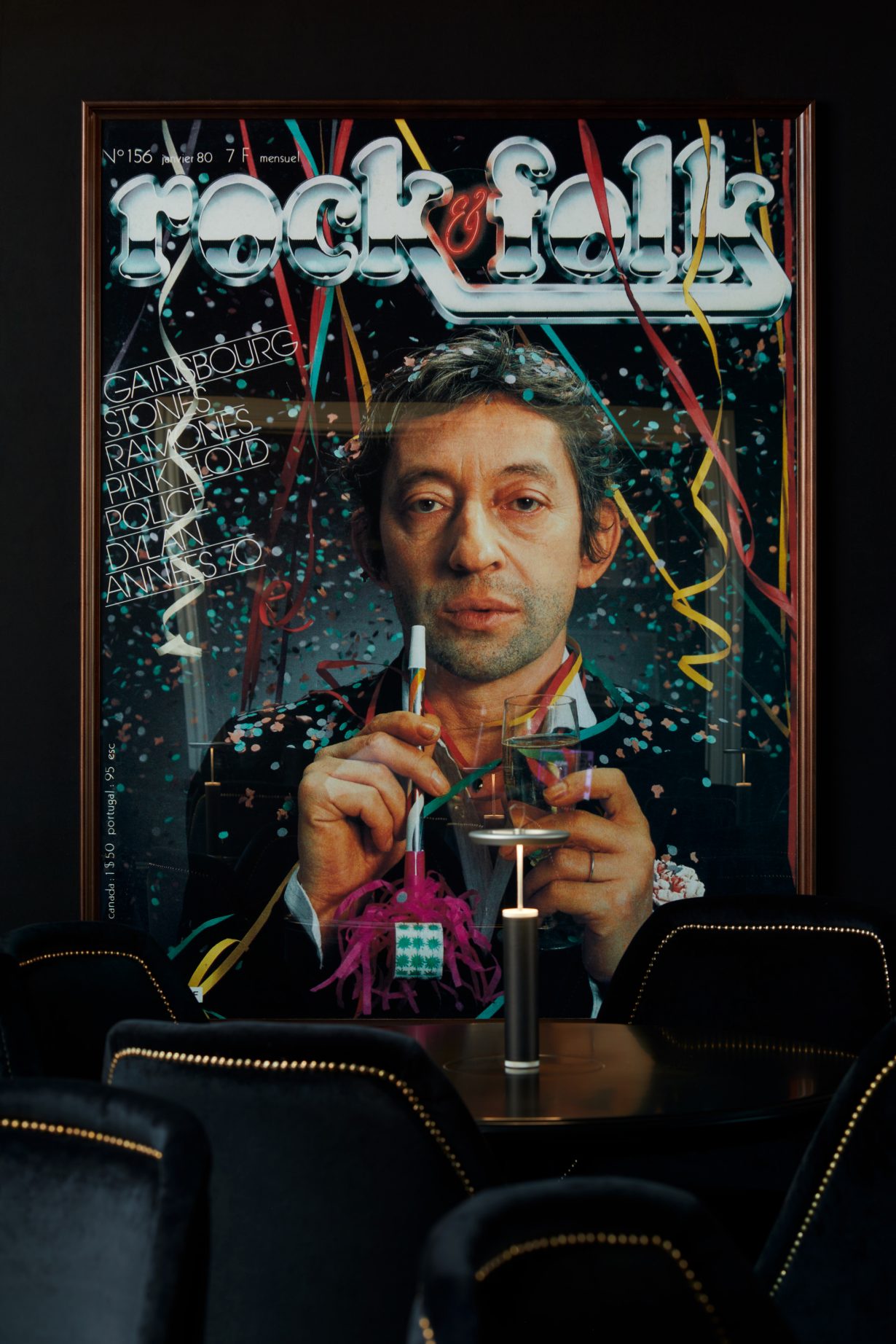As a legendary songwriter’s house opens to the public, Clara Young finds an audioguide becomes a daughter’s whispered testament to her father

Serge Gainsbourg died in 1991 but his soul dies on at his newly opened mausoleum-home, Maison Gainsbourg. Left as the composer-singer had lived in it – minus the Klee, the Dalí and the then always-present briefcase stuffed with 500-franc bills, but still a Havishamian hodgepodge of police badges and handcuffs, winged-griffin furniture, Stimorols next to the bed, champagne flutes on the coffee table, crumpled white Repetto shoes in the closet and ashtrays loaded with Gitanes butts, all of it neatly and claustrophobically crushed inside black fabric walls and low black ceilings admitting no outdoor light – Gainsbourg’s house is a lair, a tomb of beloved objects. In the years before his heart stopped for good, Gainsbourg lived at 5 bis rue de Verneuil, alone; no more lovers or children, but cops and cab drivers who nightly hauled him home inebriated and stayed to have one more for the road. To walk through this doll’s house with no more than a half-dozen other visitors at any time, breathily audio-guided not by Orpheus but his stand-in, Gainsbourg’s daughter Charlotte, is an up-close brush with life oppressively preoccupied with death. Or, at least, abiding cynicism. The tarantula in resin on the piano and Body Worlds plastination in the living room point to the worm waiting to turn in Gainsbourg’s gold-record success, a preemptive cynicism he nursed in astringent rock beats and antithetical lyrics that countered ardently romantic melodies he so often lifted from Chopin and Brahms.

Gainsbourg swooped to glory during the 1960s, then skidded in the 1980s into ‘Gainsbarre’ (‘barre’ as in ‘outta here’), his alter ego. Permanently Pastis-pissed, Gainsbarre ignited 500-franc bills on talkshows to spite the tax people, slurred at Whitney Houston that he wanted to fuck her. The ‘poète maudit’ was simultaneously national embarrassment and national bulwark, the latter because he seemed immune to America’s life-grubbing, bright-toothed desperation for happy endings. Which meant, by osmosis, France was too. The copies of Huysmans, Poe and Baudelaire in his office, and the baby Steinway and Claude Lalanne’s bronze Man with a Cabbage Head (1968) in the living room all bear out the troubadour as he inventoried himself in his corpus of 485 songs: musical sophisticate, lady-killer, agent provocateur of the lyric.

But Maison Gainsbourg is not just the diorama of a nihilist-cum-national treasure. Narrated from room to room with Charlotte’s small, detailed memories, Maison Gainsbourg is as much the work of Gainsbourg fille as père. From the nearly ten years she lived in the house, from birth till her mother, Jane Birkin, left in 1980, and then after that weekends, the daughter pulls out memories and sundries that she whispers into the visitor’s ear. That Jane always finished off her baths with her half-sister Kate (Barry) with clouds of talcum powder. That her father never let her play the baby grand but made her stand next to him while he did. That Serge never bathed but washed his feet in the bidet. That after they’d been tucked in, she and Kate could hear Serge and Jane talking as they got ready to go out. That after Jane moved out, Serge had the doorway to the girls’ bedroom off the kitchen bricked up. In the poignancy of Charlotte’s narration, which fades out at the end with Serge’s slightly halting playing of Chopin’s 1835 Valse de l’Adieu, and Jane in a rush, calling the girls to get into the car, reminding Serge about dinner at eight, and slamming the car door, Charlotte has brought a gentle tonic of truthfulness to her last duet with her father. After more than 30 years of mulling over how to present Serge Gainsbourg’s legacy, Charlotte Gainsbourg has decided to let his public see him dans son jus, an edgy, repellent genius framed by something of the daughter’s that Serge carefully kept buried: candidness.